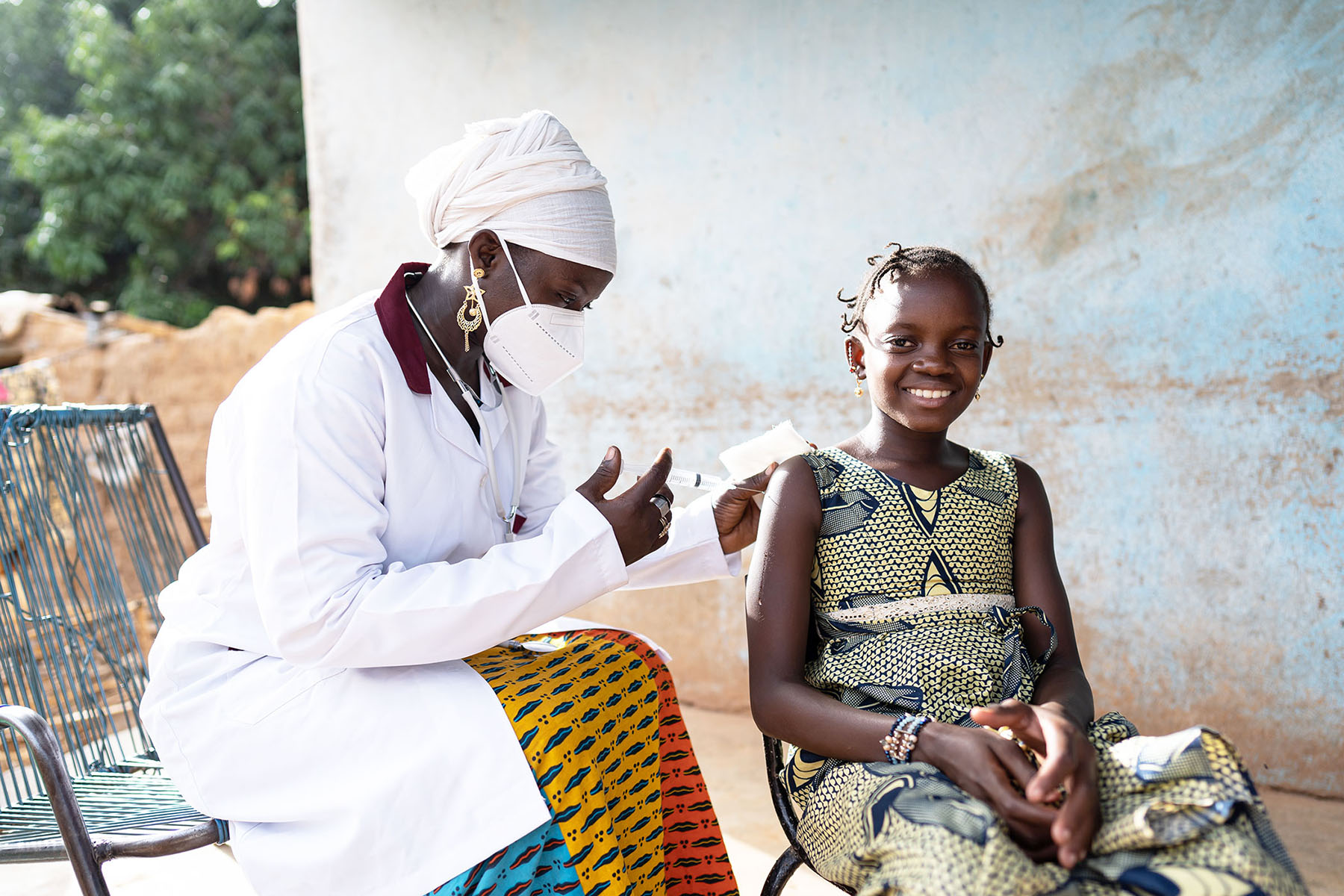WHO Moves to Single Dose HPV Vaccine
Traditionally done in two or three dose regimens, the human papillomavirus (HPV) vaccine protects against the virus that causes cervical cancer. After years of study, the World Health Organization (WHO) Strategic Advisory Group of Experts on Immunization (SAGE) concluded that a single dose delivers comparable protection as a two-dose regimen of the vaccine, which has drastic implications for spreading the life-saving drug to more girls around the world. While 95% of cervical cancer is caused by sexually transmitted HPV and it is the fourth most common type of cancer in women globally with 90% of these women living in low- and middle-income countries, it is almost entirely preventable and is therefore considered a disease of inequity of access. WHO protocols for the HPV vaccine are in the process of being revamped, with SAGE recommending updating dose schedules for HPV on a one- or two-dose schedule for the primary target of girls aged 9-14, a one- or two-dose schedule for young women aged 15-20, and two doses with a six-month interval for women older than 21.
WHO Assistant Director-General Dr. Princess Nothemba (Nono) Simelela stated, “I firmly believe the elimination of cervical cancer is possible. In 2020 the Cervical Cancer Elimination Initiative was launched to address several challenges including the inequity in vaccine access. This single-dose recommendation has the potential to take us faster to our goal of having 90% of girls vaccinated by the age of 15 by 2030.”
In 2020, global coverage of two doses of the vaccine was only 13%, due to supply challenges, the programmatic challenges and costs related to delivering a two-dose regimen to older girls who are not typically part of childhood vaccination programs, and the relatively high cost of HPV vaccines, especially for middle-income countries. Dr. Simelela added, “The option for a single dose of the vaccine is less costly, less resource intensive, and easier to administer. It facilitates implementing catch-up campaigns for multiple age groups, reduces the challenges linked to tracing girls for their second dose and allows for financial and human resources to be redirected to other health priorities.”
Moderna Introduces AI to mRNA Drug Development
In April, Moderna and IBM announced a partnership to explore the use of quantum computing and AI technology in Moderna’s development of mRNA vaccines. Moderna will be able to take advantage of IBM’s generative AI research and apply it to therapeutics to improve product design while testing how quantum approaches can help address its “scientific challenges.” In addition, IBM will be preparing Moderna’s scientists to use its technology, with the company participating in the IBM Quantum Accelerator program and the IBM Quantum Network through which access to IBM’s quantum computing systems can assist Moderna in exploring life sciences use cases powered by quantum technologies.
The collaboration aims to use an AI foundation model called MoLFormer, which can predict a molecule’s properties and provide insights into the characteristics of potential mRNA medicines. The partnership will enable Moderna to optimize its mRNA technology and lipid nanoparticles, which protect and encapsulate the mRNA as it travels through the body. The companies will also use generative AI to design mRNA medicines with optimal “safety and performance.”
Stéphane Bancel, Chief Executive Officer at Moderna, stated, “We are excited to partner with IBM to develop novel AI models to advance mRNA science, prepare ourselves for the era of quantum computing, and ready our business for these game-changing technologies.” Both companies hope that the partnership will enable them to make significant advancements in drug discovery and ultimately improve patient outcomes.
Tracking Nurses from the Florida Schools Scheme

Three formerly accredited nursing schools were confirmed as being involved in a scheme that sold 7,600 fake nursing degrees to individuals between 2016 and 2021. Siena College, Palm Beach School of Nursing, and Sacred Heart International Institute were confirmed to be involved in the scandal, and more schools are being investigated, while over 25 individuals have been charged and are facing up to a 20-year prison sentence. The fraudulent diplomas and transcripts through the schools cost $10,000 to $17,000 and allowed the buyers to illegally skip years of nursing school, sit for the national nursing board exam, and be employed as registered nurses and licensed practical/vocational nurses throughout the country.
“Not only is this a public safety concern, it also tarnishes the reputation of nurses who actually complete the demanding clinical and course work required to obtain their professional licenses and employment,” said U.S. Attorney for the Southern District of Florida Markenzy Lapointe.
It was confirmed that about 2,600 out of the 7,600 diploma purchasers passed a board exam and are state licensed to be practicing nurses. Federal prosecutors shared the names of these fraudulent nurses with state nursing boards leading to a nationwide search for all individuals.
The three indicted schools had provided legitimate training and graduated qualified nurses in the past, but the debacle has called many professionals’ nursing degrees into question. Looking at them on an individual basis and allowing fair trials for individuals will require a long-term investigation in each state.
Microsoft and Epic Bring AI to EHR

Expanding upon their existing partnership, Epic, a leader in the electronic health record (EHR) space, is working with Microsoft to incorporate the tech giant’s Azure OpenAI Service into its EHR tools to improve accuracy and efficiency. Generative AI technology offers the opportunity to automatically fill in missing information in EHR records, reducing errors and time-consuming tasks that come with updating patient information in these critical healthcare tools.
By tailoring the Azure OpenAI Service to Epic’s EHR system, the technology can be used not only to increase provider productivity with less administrative burden but potentially to suggest diagnoses and even predict future health outcomes based on historical data. But first, the companies are focusing their efforts on bringing natural language queries and interactive data analysis to Epic’s self-service reporting tool, SlicerDicer.
“Our exploration of OpenAI’s GPT-4 has shown the potential to increase the power and accessibility of self-service reporting through SlicerDicer, making it easier for healthcare organizations to identify operational improvements, including ways to reduce costs and to find answers to questions locally and in a broader context,” Seth Hain, Senior Vice President of Research and Development at Epic, said in a statement.
Other solutions made through the partnership have allowed providers to automatically draft message responses within Epic’s EHR and are already in use by UC San Diego Health; UW Health in Madison, Wisconsin; and Stanford Health Care. These AI integrations can have a huge impact on simplifying daily workflows, and automating tedious and error-prone tasks, allowing providers more time to spend on patient interaction and other important clinical duties.







